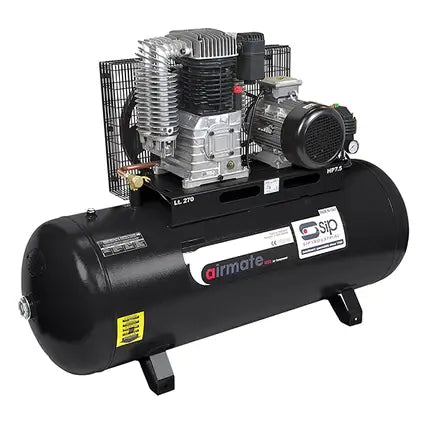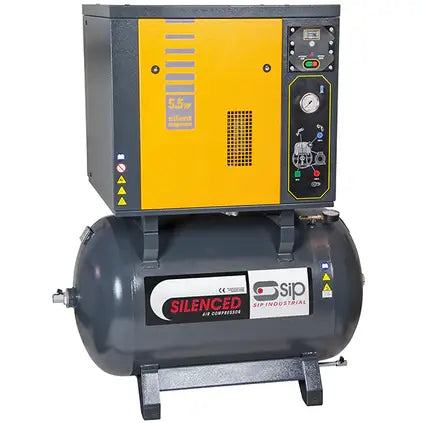
Can Air Compressors Get Wet? Safety Tips & Guide
Welcome to our guide on air compressors and their vulnerability to water damage. Whether you're a professional contractor or a DIY enthusiast, understanding how moisture can affect air compressors is crucial for their longevity and performance. In this article, we will explore the question of whether air compressors can get wet, discuss the risks of water damage, and provide safety tips to help you protect your valuable equipment in wet environments.

Key Takeaways:
- Air compressors can be damaged by water, leading to decreased performance and potential breakdowns.
- Moisture can cause rust and corrosion, compromising the internal components of an air compressor.
- Proper storage and regular maintenance are essential for safeguarding air compressors from water damage.
- Dry and well-ventilated storage areas, waterproof covers, and moisture-absorbing agents can help protect air compressors.
- Consider investing in a water-resistant air compressor if you anticipate consistent exposure to wet conditions.
Safeguarding Your Air Compressor from Water Damage
In order to protect your air compressor from water damage, it is important to follow certain precautions and practice proper maintenance. Here are some helpful tips for safeguarding your air compressor in wet environments:
1. Storage Tips
When storing your air compressor, ensure that it is kept in a dry area away from water sources. If possible, store it in a well-ventilated space to prevent moisture buildup. Consider using waterproof covers to shield your compressor from direct exposure to water.

2. Maintenance Advice
Regular maintenance is crucial for air compressors operating in wet environments. Here's what you need to keep in mind:
- Inspect and clean the air intake regularly to remove any water or debris that may have accumulated.
- Check all fittings and connections for leaks, as excess moisture can cause corrosion.
- Empty the condensation that builds up in the air tank regularly to prevent water accumulation.
- Consider installing a moisture trap or water separator to remove excess moisture from the compressed air.
- Ensure proper lubrication of moving parts, as moisture can wash away lubricants and lead to increased friction.
By following these storage tips and maintenance advice, you can protect your air compressor from water damage and ensure its longevity and optimal performance, even in wet environments.

Conclusion
In conclusion, it is important to note that air compressors are not inherently waterproof. However, with the right precautions, you can protect your equipment from water damage and ensure its proper functioning in wet conditions. By following the safety tips and maintenance advice provided in this guide, you can significantly extend the lifespan of your air compressor.
To safeguard your air compressor from potential water damage, consider investing in a water-resistant air compressor. These specially designed compressors provide an added layer of protection against moisture, making them ideal for environments where regular exposure to water is expected.
Remember, prevention is key. Keep your air compressor in a dry area, away from direct contact with water or moisture. If you work in damp or wet conditions, use waterproof covers or enclosures to shield your compressor from potential harm. Regular maintenance, such as drying and oiling, will also help to mitigate the risk of water-related issues.
By taking these proactive steps, you can ensure that your air compressor remains in excellent condition, maximizing its performance and longevity. Protect your investment and enjoy reliable operation with a waterproof air compressor or proper water-resistant measures.

